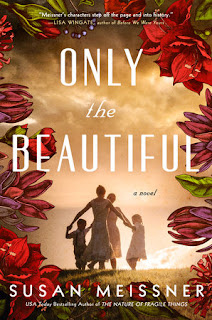What We Kept to Ourselves by Nancy Jooyoun Kim starts with a Korean American father discovering a body of a homeless black man in the yard along with a nearby note addressed to his wife who went missing a year earlier. The husband tears the note into pieces, placing them in the trash, but his daughter retrieves it, hoping it offers some clue to finding her mother.
From there, the book delves both into the couple’s background, the reasons for their estrangement and the father’s distance with his children. While John, the father, wants to bury the past, his two children work with the dead man’s daughter to unearth the connection between the dead man and a missing mother. The three adult children suspect a crime has been committed, but police questions are odd. John and the three children lie to the police and one another.
John and his wife, Sunny were college-educated and upper middle class when they emigrated from South Korea to the United States. Both families fled the North when they were children before the war’s end in 1953, though John did not realize he would never see his mother again. The man abandons his literature studies, assuming a conservative mindset and methodically adapting. In selecting Anglicized names, John rejects his wife’s choice of Anastasia and insists that she become “Sunny.”
The two children grow up in Pasadena, immersed in American culture. Meanwhile, Sunny, daughter of a famous artist and trained as an artist, struggles with English and finding fulfilling work. John works long hours to ensure their comfort, though memories of the war linger, and joy is missing: “there were so many… disappointments and tragedies in their lives cumulatively, how could you delineate one from the other when they overlapped like watercolors?” Alienated, she becomes increasingly homesick for Korean culture and activist professor who was her mentor.
John purchases a gas station in South LA without consulting his wife. He works long hours, and she immediately loathes herself for criticizing the location in a black neighborhood: “It was so much easier to be angry at, to blame people we didn’t know, wasn’t it? Because being angry at people whom we knew intimately was like being angry at ourselves. We had some great stake in it.”
Pregnant with her second child, Sunny begins labor at a bus stop and a black man comforts her until her husband arrives. Touched by the man’s kindness, she names her son Ronald after RJ, but tells her husband that the boy is named after the current president. Arranging for a sitter, she regularly returns to the bus stop and enjoying conversations with RJ who is patient and attentive. She expresses love for him, but he regards her as a sister and has other goals that include finding his estranged daughter in Alabama and researching police corruption.
RJ and Sunny meet again later years later in a grocery store parking lot. He is homeless and she purchases him a meal, knowing they won't meet again. Sunny cannot invite RJ to her home because her husband simply would not understand. She agrees to keep a box containing RJ's research.
Losing the friendship is hard for Sunny. Her husband has since purchased a nursery business, but the relationship does not improve, and she determines her children do not need a broken woman. She “once believed she would literally do anything for her children, until she realized the one thing she would not do is surrender to the prolonged and certain death of living as someone else.”
She returns to Korea, reuniting with her professor and pondering what it means to be human, deciding it was “not how well they behaved or followed the rules, because even ants in colonies could be tremendously organized and productive, but how much we could contemplate and create beauty for its own sake.” For her, creating beauty was essential for daily life and not limited to art. She concedes that her art was simply a safety net that prevented her from living a good life: “There were artists and there were people like her who viewed art as a hobbyist’s escape.”
The children mistrust one another yet work together, risking their lives while asking questions about their parents’ relationship. At one point Sunny’s and John’s daughter, Ana, determines that the entire country, not just their backyard, is a crime scene: “She had always thought of herself as an activist, but how had she also been an accomplice, complicit in a society that actively harmed, erased, killed those who challenged its mythologies of fairness, meritocracy, exceptionalism?” A librarian is most helpful while the police are not. RJ’s former co-worker urges them to give up, suggesting that people “want a story that makes the, feel safe so they can sleep at night. They’ll take any story they can, even if it’s a total lie.”
Relationships are doomed for those who cannot be honest. In this book, more intriguing than mysterious, death ends problematic relationships – between father and son, wife and husband, father and child. Only with death can others move on.















